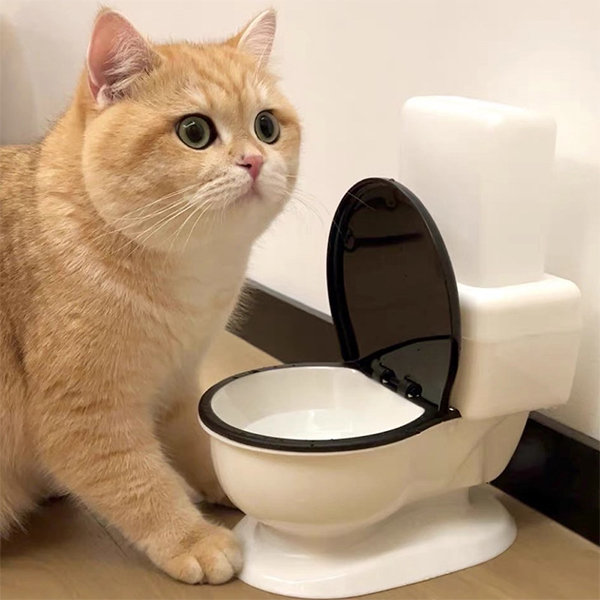Why You Must Never Flush Cat Poop Down Your Toilet - Important Information
Why You Must Never Flush Cat Poop Down Your Toilet - Important Information
Blog Article
The content which follows pertaining to How to Dispose of Cat Poop and Litter Without Plastic Bags is particularly entertaining. Give it a go and draw your own personal assumptions.

Intro
As feline proprietors, it's important to bear in mind exactly how we get rid of our feline buddies' waste. While it may seem practical to purge pet cat poop down the toilet, this practice can have damaging effects for both the environment and human health and wellness.
Alternatives to Flushing
Fortunately, there are more secure and extra responsible methods to throw away feline poop. Think about the following choices:
1. Scoop and Dispose in Trash
One of the most usual method of throwing away feline poop is to scoop it into a biodegradable bag and toss it in the garbage. Make certain to make use of a dedicated trash inside story and throw away the waste quickly.
2. Use Biodegradable Litter
Select eco-friendly feline litter made from products such as corn or wheat. These clutters are environmentally friendly and can be securely thrown away in the garbage.
3. Hide in the Yard
If you have a yard, take into consideration hiding feline waste in a designated location far from vegetable yards and water resources. Make certain to dig deep adequate to avoid contamination of groundwater.
4. Mount a Pet Waste Disposal System
Invest in an animal waste disposal system specifically made for feline waste. These systems utilize enzymes to break down the waste, minimizing odor and ecological influence.
Health and wellness Risks
Along with environmental worries, purging feline waste can also pose wellness risks to humans. Feline feces might have Toxoplasma gondii, a bloodsucker that can create toxoplasmosis-- a possibly serious disease, specifically for pregnant females and individuals with weakened body immune systems.
Environmental Impact
Flushing cat poop introduces harmful pathogens and parasites right into the water, posing a significant danger to water ecosystems. These contaminants can negatively affect marine life and concession water high quality.
Final thought
Liable pet dog possession extends past offering food and sanctuary-- it likewise includes proper waste management. By avoiding purging feline poop down the toilet and opting for different disposal methods, we can minimize our ecological impact and secure human health.
Why You Should Never Flush Cat Poop Down the Toilet
A rose by any other name might smell as sweet, but not all poop is created equal. Toilets, and our sewage systems, are designed for human excrement, not animal waste. It might seem like it couldn’t hurt to toss cat feces into the loo, but it’s not a good idea to flush cat poop in the toilet.
First and foremost, assuming your cat uses a litter box, any waste is going to have litter on it. And even the smallest amount of litter can wreak havoc on plumbing.
Over time, small amounts build up, filling up your septic system. Most litter sold today is clumping; it is made from a type of clay that hardens when it gets wet. Ever tried to scrape old clumps from the bottom of a litter box? You know just how cement-hard it can get!
Now imagine just a small clump of that stuck in your pipes. A simple de-clogger like Drano isn’t going to cut it. And that means it’s going to cost you big time to fix it.
Parasitic Contamination
Believe it or not, your healthy kitty may be harboring a nasty parasite. Only cats excrete Toxoplasma in their feces. Yet it rarely causes serious health issues in the cats that are infected. Most people will be fine too if infected. Only pregnant women and people with compromised immune systems are at risk. (If you’ve ever heard how women who are expecting are excused from litter cleaning duty, Toxoplasma is why.)
But other animals may have a problem if infected with the parasite. And human water treatment systems aren’t designed to handle it. As a result, the systems don’t remove the parasite before discharging wastewater into local waterways. Fish, shellfish, and other marine life — otters in particular — are susceptible to toxoplasma. If exposed, most will end up with brain damage and many will die.
Depending on the species of fish, they may end up on someone’s fish hook and, ultimately on someone’s dinner plate. If that someone has a chronic illness, they’re at risk.
Skip the Toilet Training
We know there are folks out there who like to toilet train their cats. And we give them props, it takes a lot of work. But thanks to the toxoplasma, it’s not a good idea.

I found that review on Don’t flush cat feces down the toilet when exploring the search engines. For those who liked our page kindly be sure to pass it around. Bless you for your time. Visit again soon.
This Resource Report this page